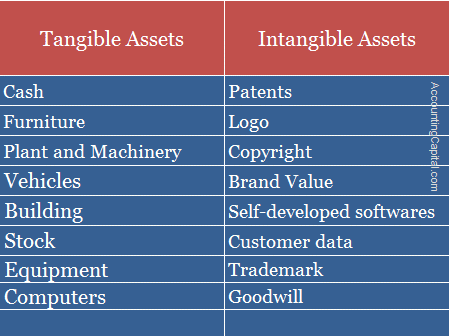Ways to Increase Your Company’s Network Reliability

In today’s fast-paced business world, network downtime can significantly impact a company’s bottom line, customer satisfaction, and brand reputation. As a result, ensuring network reliability has become a top priority for organizations of all sizes. To achieve this, companies must implement various strategies and best practices to minimize the risk of downtime and ensure that their networks remain up and running at all times. Consult Denver IT Support experts to gain more ways to increase your company’s network reliability.
In this article, we will explore some of how companies can increase their network reliability and minimize the risk of downtime. We will provide practical tips and advice to help businesses ensure that their networks are always reliable and available to meet their needs.
Table of Contents
6 Ways to Increase Your Company’s Network Reliability
1. Keep Your Network Up to Date
As your business grows and the demands on your network increase, it’s essential to take proactive steps to ensure it can handle the extra load. With each new application, location, and user, your network infrastructure may need help to sustain the same level of performance. Even though you should thoroughly research vendor solutions, the reality is that most networks do wear out over time and may need replacing. By investing in a robust network infrastructure now, you can ensure your business runs smoothly and reliably as it grows. If you’re still stuck with an outdated cabled internet connection, it’s time to upgrade to a new, reliable, wired connection. Not only will this provide you with faster speeds, but it can also fix most of the issues you may be experiencing.
Additionally, make sure that you have all the latest software versions available. Updating your software regularly will help ensure optimal performance across your entire network. By keeping your software up-to-date, you can significantly improve the performance of your network.
2. Provide Sufficient Capacity
Having a reliable network is essential to ensure successful collaboration. This is why it is important to ensure sufficient capacity to accommodate the demands of multiple users. “When multiple users start collaborating in real-time, the network will be inevitably affected,” says Ettienne Reinecke. “Companies need to offer more bandwidth to keep up with this demand. They must work with their telecom partners to ensure their networks can provide the necessary capacity.”
You can ensure you have the necessary capacity with the right combination of access possibilities. VDSL, Ethernet, and fiber optic can provide reliable power, but the mobile network also plays an essential role. A 4G backup service can provide a crucial safeguard against disruption and help you remain connected when needed. With the right combination of technologies, you can ensure you have the capacity you need, whatever the circumstances.
3. Compress Data and Network Traffic
Businesses are transferring larger and larger volumes of data across their networks daily, leading to an increased workload for the network to access that data. Bandwidth constraints are a reality of network management and are almost unavoidable. To ensure efficient data flow, companies need to find ways to maximize the available bandwidth and minimize bottlenecks. By implementing network optimization strategies and deploying the right technologies, businesses can ensure that their data is transferred quickly, securely, and reliably.
Data compression can be an excellent solution for reducing the size of your data while ensuring that the entire content is transmitted. By using compression algorithms, you can significantly decrease the file size dispatched within a network, improving the speed and efficiency of your network. Not only will this help you save on bandwidth costs, but it will also allow you to transfer more data in less time.
4. Understand Your Business Needs
Understanding the networking needs of your business is the step in building a successful business network. Depending on the size and type of your organization, you may require different networking capabilities. For instance, a small business may only need a primary network to accommodate a few users, while a large enterprise might require a more complex network to support thousands of users. Consider the size and scope of your business and its future growth to determine the most appropriate networking solution for you.
If you run an ecommerce business, you need a network that can handle large amounts of traffic and data. Conversely, if many employees work remotely, you need a network more focused on security. Our network solutions are designed to meet the individual needs of businesses, ensuring that they have the right tools to meet their specific requirements. With our robust, secure, and reliable networks, your business will be ready to take on any challenge.
5. Choose the Right Partners
Network technology is a specialized and critical component of your business operations. For successful, reliable, and secure operations, working with external experts with the right qualifications and experience is essential. As a customer, you should retain complete control over your network and telephony projects: you should be able to select the specific services and solutions you need and the partner to provide them. By engaging external experts, you can ensure that your network technology is expertly managed, and you can focus on other areas of your business.
By choosing an open ecosystem, you can be assured that you won’t be limiting yourself to any one party. Our open ecosystem allows us to partner with the best in networking, security, storage, and disaster recovery, so you can rest assured that your business is always in good hands. With our open ecosystem, you can be sure you are getting the most comprehensive, reliable, and secure services.
6. Check for Viruses or System Defects
If you’ve noticed a sudden slowdown in your network performance, it could be caused by malicious network activity. Malware is known for slowing down networks, inhibiting workflows, and causing many other problems. To ensure the safety of your network, it’s essential to have an emergency IT specialist run a check as soon as possible. Don’t wait until the damage is done – act now to protect your data and keep your network running smoothly.
Slowdowns in your network can be caused by components no longer functioning correctly due to age and wear. Replacing these components is often more cost-effective than upgrading your entire network. Doing so can help you avoid costly downtime and ensure optimal performance.
Final Words
A reliable network is the backbone of any successful business in today’s digital age. Implementing the right strategies to increase network reliability can help companies avoid costly downtime, prevent data loss, and maintain high customer satisfaction. Companies can ensure that their networks operate smoothly and securely by regularly monitoring and updating their network infrastructure, investing in high-quality equipment and software, and training their staff to handle potential issues. Additionally, partnering with trusted vendors and service providers can provide extra support and expertise. By prioritizing network reliability, companies can stay ahead of the competition, enhance their reputation, and achieve long-term success in the dynamic business world.
Post courtesy: Greystone Technology – IT Services Provider in Denver, Colorado






